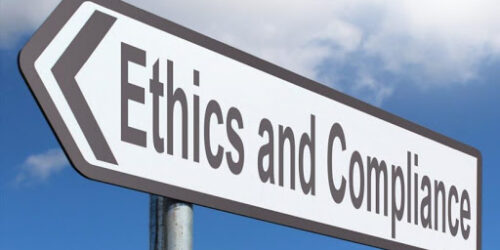Workplace Privacy, Health and Safety – Facebook

Workplace Privacy, Health and Safety – Facebook
Privacy is the right to keep our personal stuff for ourselves, ask to be left alone, and learn how our personal private information is processed and/or transferred to others. Our personal privacy can be impeded by the corporate privacy rules of the workplaces. In Facebook, workplace monitoring, and employee surveillance are limited in the premises. As I learned from my friend who worked in Facebook, there are security cameras placed in the buildings but only in appropriate locations for legitimate purposes such as security and safety. The company also complies with the Electronic Communication Privacy Act (ECPA) of 1986 which prevents employers to listen to personal phone conversations of their employees.
Having a full autonomy over the work we’re doing is part of our privacy too. Employees should ideally be free to choose the way of how they do what they do, and have control over their working environment. This provides them with a sense of autonomy as well as privacy. Facebook, in general, is known for having an organizational culture where astounding autonomy is given to the employees.
Workplace privacy is the protection of personal privacy rights in the workplace, and as in everything, there’s no rose without a thorn. We enjoy the great advancements in technology, but technological developments made it so easy for employers to monitor the employees’ workplace activities. Facebook didn’t make the news about workplace privacy breach (well, it could be because its turn hasn’t come yet as the company is always on the boil for ‘’users’’ privacy problems). However, with the latest advancements in technology, surveillance is easier and less costly for the companies so what was possible for only big organizations before is possible for all companies now. This raises ethical concerns as the ethical use of technology is always a matter of debate. Employees have ethical expectations of privacy, but some employers think they have greater interest to monitor every bit of activities of their employees. Finding the right balance between the interests of these two different parties is the ultimate goal for big corporations.
As a company ranked the best company to work for in the US in many platforms such as Indeed, Glassdoor in the last couple of years, workplace safety has never been a problem in Facebook (Gillett, 2017). It could, of course, be based on that Facebook is a tech company which has a digital product and doesn’t deal with unsafe materials or conditions at the workplace.
It’s fair to say that the biggest health and safety measure that the company had to implement was to make sure that the work furniture used in the offices are ergonomically healthy and safe for the employees. Also, with the current pandemic situation, Facebook has taken the standard safety measures mandated by the U.S. Department of Health and Human Services (HHS). Zuckerberg announced in early July that the Facebook employees are allowed to work from home through the end of 2020 (Rodriguez, 2020).
Facebook is a pioneer in the tech industry when it comes to family-friendly measures. Especially after Sheryl Sandberg came to Chief Operating Officer in Facebook in 2008, there has been a remarkable enhancement on the company’s parental benefits. Some examples of Facebook’s family-supporting policies can be listed as follows: Facebook’s parking lot has a dedicated parking space for pregnant employees. Families get “Baby cash” of $4,000 to cover new baby expenses. Daycare costs are subsidized by Facebook. Four months of paid parental leave for both new moms and dads is among the longest offered in the US despite the country’s law doesn’t require companies to provide any paid parental leave. Besides, the company supports a flexible spending account for dependent care so care expenses for a child or parent with pre-tax money can be covered by its employees (Kearney, 2017). With these and many more measures implemented by Facebook way earlier than the other companies in the US, it’s fair to say that Facebook changed the game in the arena of family-supportive flexibility.
References
Carroll, A. B., Brown, J. A., Buchholtz, A. K. (2018). Business & Society: Ethics, Sustainability & Stakeholder Management. Boston, US: Cengage Learning.
Gillett, R. (2017). 7 reasons Facebook is the best place to work in America and no other company can compare. Business Insider. Retrieved July 28, 2020, from https://www.businessinsider.com/facebook-best-place-to-work-in-america-2017-12
Kearney, L. (2017). Facebook’s Sandberg urges family-friendly policies on Mother’s Day. Reuters. Retrieved July 28, 2020, from https://www.reuters.com/article/us-facebook-sandberg-idUSKCN18A0WI
Rodriguez, S. (2020). Facebook will allow most employees to work from home through end of 2020. CNBC. Retrieved July 28, 2020, from https://www.cnbc.com/2020/05/07/facebook-to-allow-most-employees-to-work-from-home-through-end-of-2020.html





